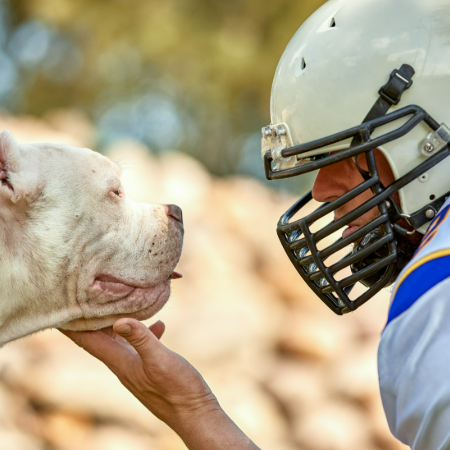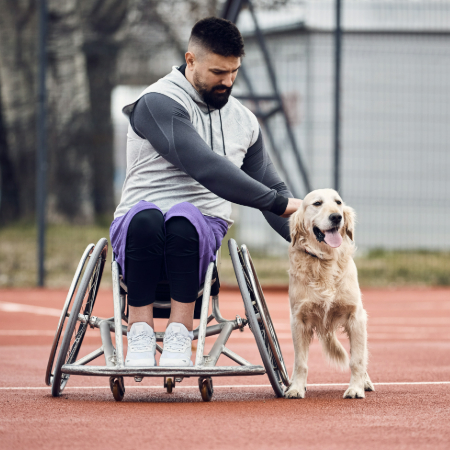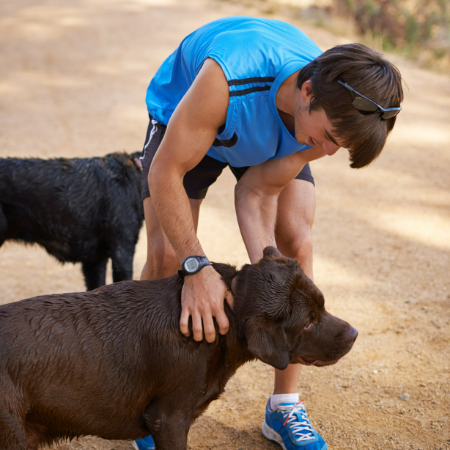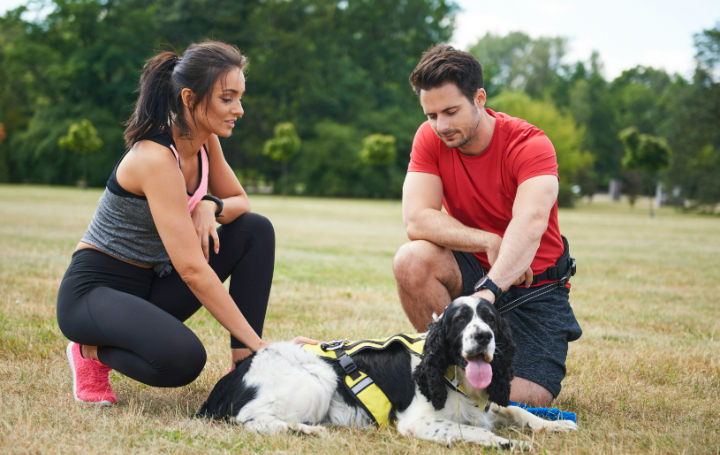The Role of Dogs in Sports Therapy: Helping Athletes Recover
When we think of therapy, we often picture a calm room with soft music and a therapist guiding someone through their emotions. But what if I told you that some of the best therapists have four legs, wagging tails, and a tendency to slobber all over your face? Yep, we’re talking about dogs! These lovable creatures are playing a huge role in helping athletes recover—physically, emotionally, and mentally. Whether it’s an injury, post-game exhaustion, or the emotional toll of competition, dogs have a unique way of helping athletes bounce back stronger.
The Healing Power of a Wagging Tail
Dogs have an almost magical ability to make people feel better. Their mere presence can lower stress levels, reduce anxiety, and even help with pain management. This is especially important for athletes who deal with intense physical strain, high-pressure games, and sometimes even career-threatening injuries.

Science backs this up, too! Studies have shown that interacting with dogs can boost the production of oxytocin (the “love hormone”) and serotonin (the “happy hormone”) while lowering cortisol (the “stress hormone”). That means petting a dog doesn’t just feel good—it actually helps heal the body and mind.
Dogs and Physical Recovery
Athletes often go through rigorous physical therapy after injuries, and this process can be painful, frustrating, and mentally exhausting. Enter therapy dogs! These dogs are trained to assist in rehabilitation by providing comfort and even aiding in physical exercises. Here’s how they help:
Encouraging Movement: Some therapy programs involve dogs in exercises. For example, an athlete recovering from knee surgery might be encouraged to take short walks while holding a leash, making the rehab process feel less like a chore and more like a bonding experience.
Pain Reduction: Petting or cuddling a dog releases endorphins, the body’s natural painkillers. This can make therapy sessions more tolerable and even enjoyable.
Strength and Coordination Training: Some athletes perform light exercises by playing with dogs. Throwing a ball, engaging in agility training, or even brushing a dog can help rebuild strength and improve motor skills in a fun and interactive way.
Emotional Support: More Than Just a Furry Friend
Being an athlete isn’t just about physical strength—mental resilience is just as important. Injuries, losses, and the pressure to perform can take a serious toll on an athlete’s mental health. Dogs provide unconditional love and companionship, which can be incredibly comforting during tough times.
Reducing Stress and Anxiety: The pressure to win can be overwhelming. Therapy dogs offer a moment of relief, allowing athletes to relax and refocus before or after a game.

Boosting Confidence: For athletes struggling with self-doubt after an injury or poor performance, dogs provide a judgment-free zone. Their excitement and affection remind athletes that they are valued beyond their achievements.
Combating Loneliness: Many athletes travel frequently or spend long hours training, which can be isolating. A loyal dog offers constant companionship and a sense of stability, making life on the road or during recovery less lonely.
Famous Athletes and Their Canine Companions
Many top athletes swear by the healing power of dogs. Here are a few well-known sports stars who have turned to their furry friends for comfort and support:
Serena Williams (Tennis) – Serena has always been vocal about her love for dogs, often sharing pictures of her adorable Yorkie, Chip, who keeps her company during training and tournaments.
Tom Brady (Football) – The legendary quarterback has a dog named Lua, who has been his companion throughout his career, providing emotional support through wins and losses.
Lindsey Vonn (Skiing) – Lindsey’s dogs, Leo and Bear, have played a huge role in her recovery after multiple injuries, offering her companionship and motivation during tough times.
The Future of Dogs in Sports Therapy
As the benefits of therapy dogs become more widely recognized, more sports teams and training facilities are incorporating them into their programs. Some rehabilitation centers now have full-time therapy dogs to assist injured athletes, while some professional teams allow players to bring their pets to training sessions.
There’s even talk about introducing therapy dog programs at major sporting events to help athletes manage stress and stay focused. Imagine a team of happy Labradors at the Olympics, ready to comfort athletes before their big moment—sounds like a dream come true, right?
How You Can Benefit from a Therapy Dog
You don’t have to be a professional athlete to enjoy the benefits of a dog in sports therapy. If you’re into fitness, sports, or even just dealing with everyday stress, spending time with a dog can work wonders. Whether it’s going for a run together, playing fetch, or simply snuggling on the couch, dogs have an incredible ability to make life better.

If you’re recovering from an injury, consider looking into therapy dog programs in your area. Many hospitals, rehabilitation centers, and even local community groups offer pet therapy sessions where you can experience the calming and healing effects of these amazing animals.
Conclusion: The Ultimate Teammate
In the world of sports, athletes are always looking for ways to improve performance, recover faster, and stay mentally strong. While physical therapy, diet, and training play huge roles, dogs are proving to be one of the most effective and lovable recovery tools available. They offer unconditional love, emotional support, and even help with physical rehabilitation—all without asking for anything in return (except maybe a treat and some belly rubs).
So, whether you’re an elite athlete or just someone who loves to stay active, never underestimate the power of a wagging tail. Dogs truly are man’s (and athlete’s) best friend!
Doglime for more dog-related information.
Tags










